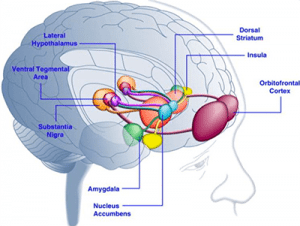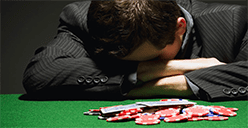Problem gamblers’s brain levels increase at the sight of gambling
A new study has revealed why problem gambling has overall remained constant – gambling addiction triggers the brain similarly to drug and alcohol dependencies.

The research was published in Translational Psychiatry and released on Tuesday, revealing gambling images create the same brain reaction as cravings do in drug addicts.
The study was conducted in the United Kingdom and involved 38 members, with 19 said to have a gambling addiction, who underwent a magnetic resonance imaging brain scan while shown photos of gambling. The insula and the nucleus accumbens in the brain were found to be incredibly active in the group of problem gamblers.
These areas of the brain are associated with decision-making and control and have previously been found as the key areas of the brain associated to drug and alcohol addiction.
While the science behind problem gambling is still relatively unknown, these findings do give some evidence behind the belief problem gamblers inherit the gambling gene. The study also shows why gambling addiction rates can be considered to have remained the same, despite the influx of available gambling avenues and the rising popularity of online casinos.
Co-author from the Department of Medicine at Imperial, and director of the National Problem Gambling Clinic at Central and North West London NHS Foundation Trust, Dr Henrietta Bowden-Jones, said the research will provide biological evidence and could lead to finding a cure.
“This work provides vital clues into the biology of gambling addiction, which is still largely unknown,” she said.
“We know the condition may have a genetic component – and that the children of gambling addicts are at higher risk of gambling addiction themselves – but we still don’t know the exact parts of the brain involved.
“This research identifies key brain areas, and opens avenues for targeted treatments that prevent cravings and relapse.”
The study’s other co-author and director of the UBC’s Centre for Gambling Research, Luke Clark said if addicts can control their response to certain gambling cues, such as the sounds of the pokies, relapse could be avoided.
He also noted potential treatments, suggesting the use of naltrexone which is used in the treatment of drug and alcohol addicts – this is already being used for problem gamblers in Australia and has been proven effective.
The authors behind the study are now testing out difference treatments to target the area of the brain and potentially reduce cravings, while their next area of focus is to compare brain level activity in gamblers who do not have an addiction to find out why it can escalate in some.
For those interested, you can read our in-depth look at gambling facts and psychology for our take on the many understated factors which influence gambling addiction.
